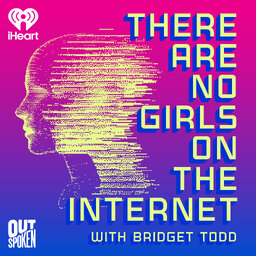Why we’re all burnt out + Our first live show!
BIG NEWS! We’re doing our first ever LIVE taping of There Are No Girls on the Internet at Unfinished Live on Sep 23 and 24th at the Shed in NYC and virtually.
Go to live.unfinished.com and use promo code TANGOTI
Have you seen the new Amazon Prime doc LulaRich, all about the rise and fall leggings scam LulaRoe? Later this week, we’ll be joined by Roberta Blevins, former LulaRoe mentor turned anti MLM advocate featured in the documentary.
But in the meantime, let’s revisit our conversation with Anne Helen Peterson, author of Can't Even: How Millennials Became the Burnout Generation to discuss some of the societal forces that lead to women being easy prey for scams.
Get Anne's book: https://www.amazon.com/Cant-Even-Millennials-Burnout-Generation/dp/0358315077
How Work Became an Inescapable Hellhole : https://www.wired.com/story/how-work-became-an-inescapable-hellhole/
How Millennials Became The Burnout Generation:
https://www.buzzfeednews.com/article/annehelenpetersen/millennials-burnout-generation-debt-work
Check out Anne’s Substack Culture Study: https://annehelen.substack.com/
Learn more about your ad-choices at https://www.iheartpodcastnetwork.com
In 1 playlist(s)
There Are No Girls on the Internet
Marginalized voices have always been at the forefront of the internet, yet our stories often go over…Social links
Follow podcast
Recent clips

Chris Pratt Is Hawking an Anti-Abortion Prayer App; Elon's Grok Is Doxxing Women; DOGE Bros Let ChatGPT Do Their Job; Trump’s Big DEI Loss – NEWS ROUNDUP
1:07:04

Satanic Panic of the 1980s Is Happening Again — This Time in Minnesota Daycares (w/ Sarah Marshall)
51:40

Amazon Ring Super Bowl Ad BACKFIRES; YouTubers Exploit Women's Arrest Videos; Salesforce CEO ICE "Joke" – NEWS ROUNDUP!
1:10:54
 There Are No Girls on the Internet
There Are No Girls on the Internet